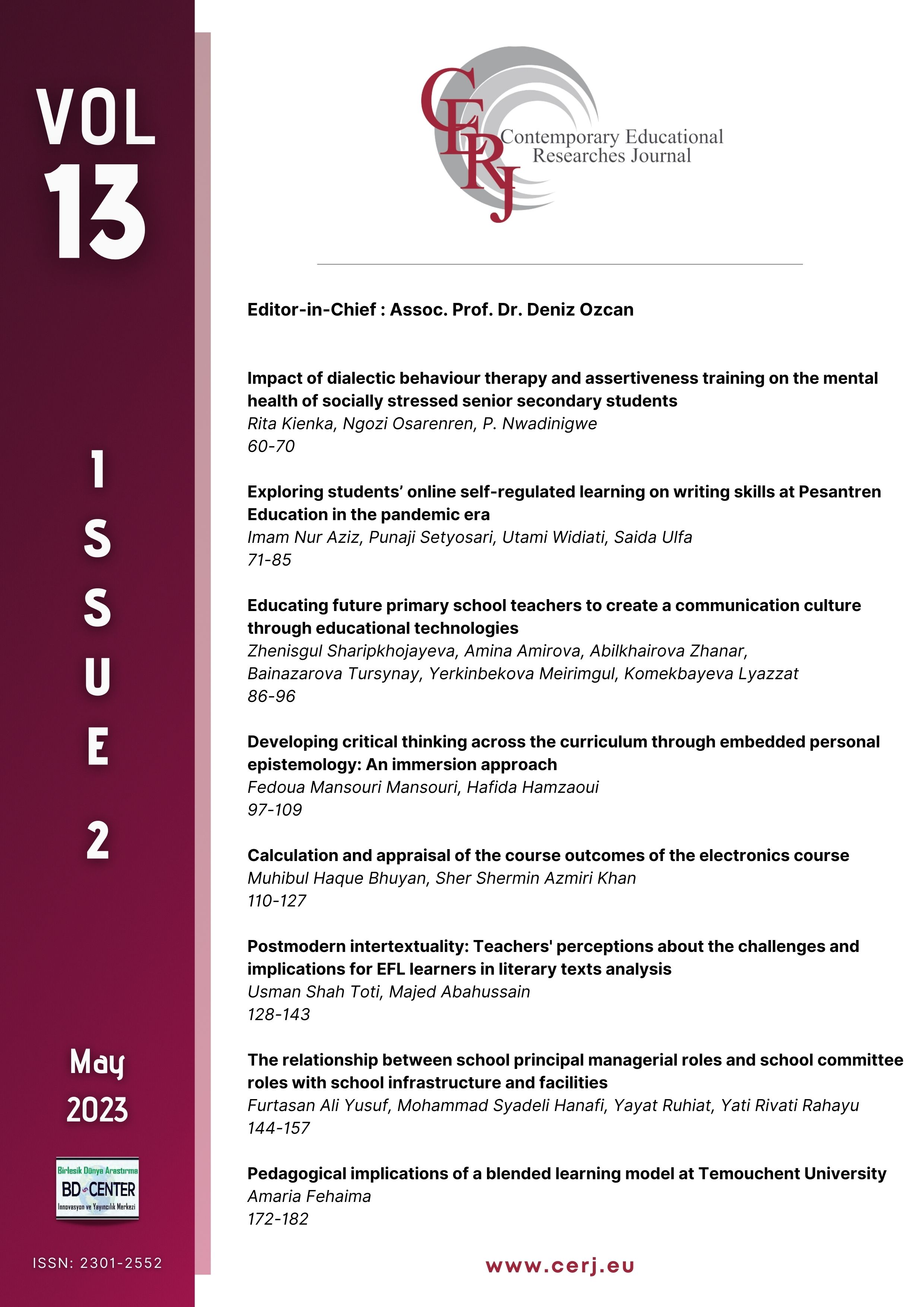Calculation and appraisal of the course outcomes of the electronics course
Main Article Content
Abstract
The purpose of this research work was to assess and evaluate the course outcomes of the electronics course of the Bachelor of Science in Electrical and Electronic Engineering program incorporating higher-order thinking skills and complex engineering problem-solving skills among the students. This course is one of the essential course courses of BSc in EEE program of study and as such, its course outcomes are associated with three program outcomes. To compute and appraise the course outcomes of this course and hence its impact on the program outcomes, we used direct assessment data from various formative and summative assessment tests during a particular semester. For this purpose, an assessment plan was prepared and then test data were used to evaluate the outcome. Finally, statistical analysis is performed to check whether a particular student cohort of electronics courses could achieve this or not. All of the 46 participating students have attained the benchmark set before the start of the course. Finally, course survey results and a few recommendations are provided as a measure of the continuous quality improvement method.
Keywords: Assessment; course outcome; electronics; evaluation; outcome-based education
Downloads
Article Details

This work is licensed under a Creative Commons Attribution-NonCommercial-NoDerivatives 4.0 International License.
Authors who publish with this journal agree to the following terms:
- Authors retain copyright and grant the journal right of first publication with the work simultaneously licensed under a Creative Commons Attribution License that allows others to share the work with an acknowledgement of the work's authorship and initial publication in this journal.
- Authors are able to enter into separate, additional contractual arrangements for the non-exclusive distribution of the journal's published version of the work (e.g., post it to an institutional repository or publish it in a book), with an acknowledgement of its initial publication in this journal.
- Authors are permitted and encouraged to post their work online (e.g., in institutional repositories or on their website) prior to and during the submission process, as it can lead to productive exchanges, as well as earlier and greater citation of published work (See The Effect of Open Access).
